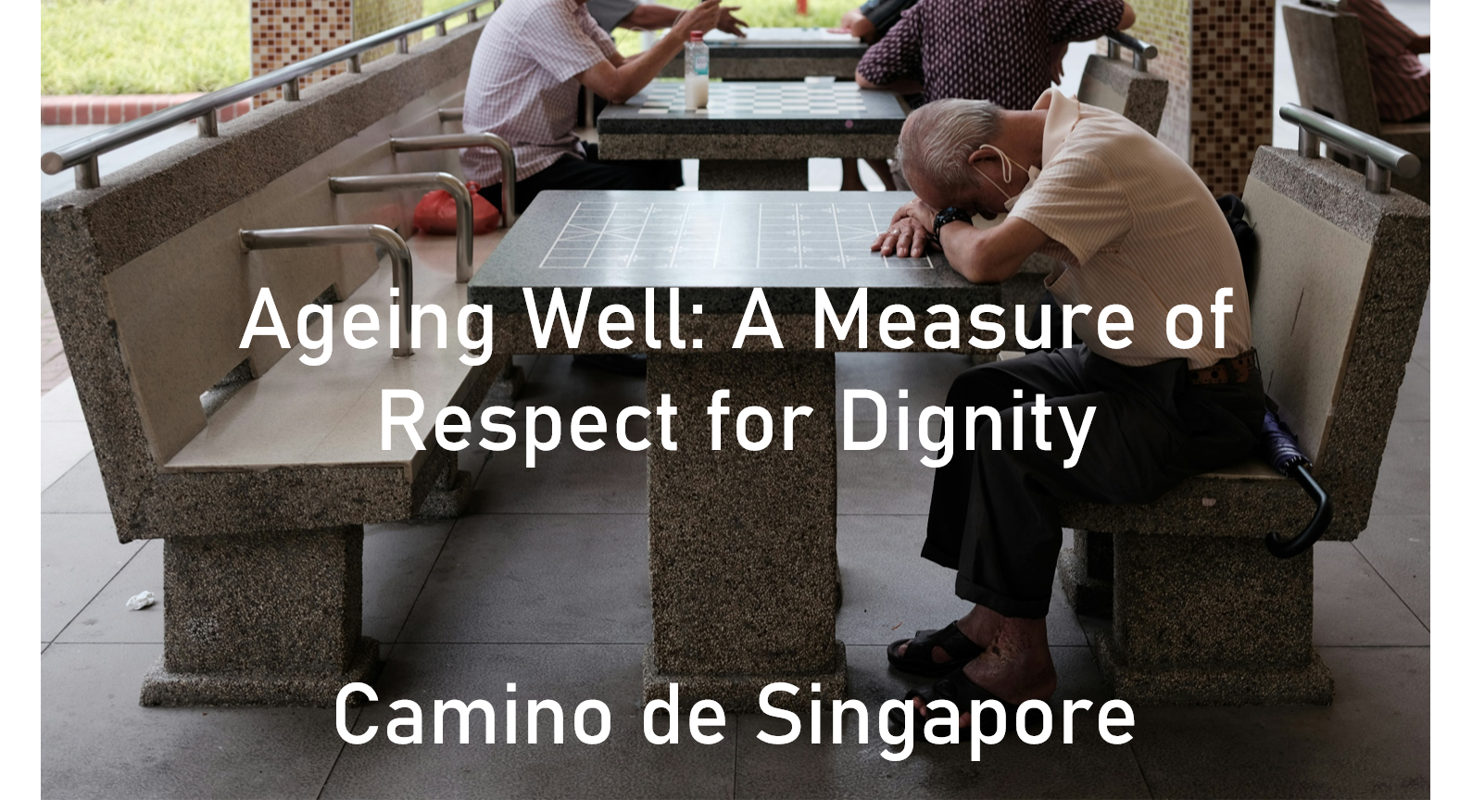No products in the cart.

Singapore is on the cusp of becoming a super-aged society, where persons aged 65 and above make up at least 21% of the population. An immediate implication is that there will be more retirees who are not working, and healthcare expenses will increase. Naturally, more people, especially seniors, will be at risk of having insufficient savings to pay for their medical bills. This concern is and will continue to be one of the most important social issues in Singapore. Now, how can Catholics think about this from the perspective of faith?
In general, there are two main ways to reduce the risk of seniors getting saddled with unaffordable medical expenses. The first is a preventive approach. There are more measures introduced at the national and community level to encourage seniors to age actively and stay socially connected. If seniors live healthy lives, physically and mentally, they are less likely to be in need of medical attention. The second approach is the provision of subsidies. The Pioneer and Merdeka Generation packages, for example, are meant to make medical expenses affordable for seniors from these two generations. Both approaches are essential.
Yet, as the proportion of the elderly continues to increase in Singapore, the questions of how much support is too burdensome, who should be prioritised and for what reasons may become more urgent. Let us consider how an economic productivity approach will answer these questions, and then how the Church might respond.
From the perspective of productivity, there should be an upper limit to how much support can be given to seniors above which the economy would become too unproductive because of the high spending. Some of these could be used to stimulate the economy, after all. Moreover, from such a viewpoint, the preventive approach is important primarily because a lower number of sick seniors means less money spent to subsidise their healthcare. Finally, since resources are scarce, those who have contributed to the economic productivity in the past would deserve more help.
On the other hand, the Catholic Church’s social teaching tradition has always rested on the idea that every human person is made in the image of God, possessing inalienable dignity and immeasurable worth. Thus, the responsibility to honour God the Creator is inseparable from the duty to ensure that every person’s dignity is protected.
Now, if we believe that everyone deserves to live with dignity because they are children of God by nature, the way we approach the question of support for seniors will be different. The state of every person, seniors included, being able to live well is more important than economic productivity. In fact, a productive economy is important only because generation of wealth facilitates better an outcome where all can flourish with dignity. Economic growth is merely a means. Also, from the perspective of dignity, the preventive approach is important not so much because we want less seniors to need medical care. Rather, it is because we want them to be able to flourish. It is not all about health but overall wellbeing. Finally, the dignity principle will not ask who deserves more help or attempt to evaluate who contributed more in the past. It strives to ensure a dignified life is accessible to all.
Both productivity and Catholic approaches might agree on the importance of prevention and subsidies, but the rationale would greatly differ. This difference will become more pronounced when budgets are cut because of economic slowdown and the question of priority rises. But no matter the costs of ageing population, we as Catholics must strive to defend the dignity of every person, regardless of age, ability and past contribution. The economy must serve the person and not the other way around.
If our society does not have this mindset, then too many of us will live in fear of the day we become a burden and unable to receive enough support. Such a society cannot be considered as socially developed. On the other hand, a society where every senior can age well without being afraid of becoming a burden is one that respects the dignity of God’s children. It is one where the Good News of the Risen Lord can be witnessed so much more clearly.
Now, how might such a society look like? If you would like to find out more, consider joining us at our Social Mission Conference this coming May on “Dignity of Life, Care for All”.
Related News
S$3.5 billion to be set aside over next decade to help elderly age well (CNA, 16 February 2024)
Home palliative care capacity to increase 50% to 3,600 places by 2025 (CNA, 19 March 2024)
Erwin Susanto is a staff member of Caritas Singapore. He enjoys arcane conversations on the Old Testament/Hebrew Bible in the context of the Ancient Near East. He enjoys thinking about all sorts of contemporary issues and often wonders if punditry is fun.
